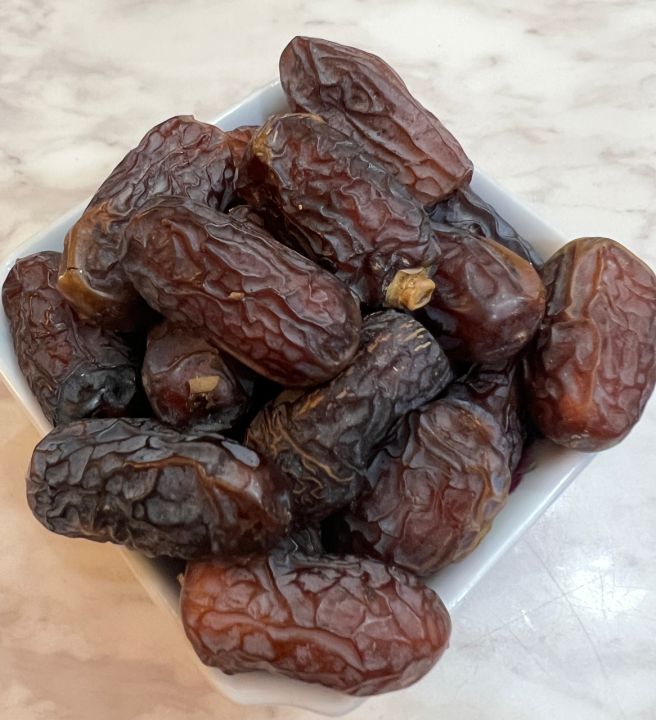Dates Fruit Industry in Malaysia: A Guide for Kurma Suppliers

1. Introduction to the Dates Fruit Industry in Malaysia
The dates fruit industry in Malaysia has experienced significant growth in recent years. This versatile and nutritious fruit has gained popularity among consumers, leading to increased demand and market opportunities. As a kurma supplier, understanding the dynamics of the dates fruit industry is crucial for success. Let’s delve into the key aspects of this industry.
2. Market Trends and Demand
2.1 Rising Popularity of Dates Fruit
Dates fruit has gained traction among health-conscious consumers due to its natural sweetness, nutritional benefits, and versatility in culinary applications. The rising awareness of its health benefits, including high fiber content and essential nutrients, has contributed to the increasing demand for dates fruit in Malaysia.
2.2 Growing Market Demand
The demand for dates fruit in Malaysia is driven not only by local consumers but also by the tourism industry. With Malaysia being a popular tourist destination, there is a steady demand for dates fruit as a souvenir or gift item. Additionally, dates are consumed during festive occasions, religious ceremonies, and cultural celebrations, further boosting market demand.
3. Dates Fruit Production Processes
3.1 Cultivation and Harvesting
Dates fruit cultivation in Malaysia involves selecting suitable varieties, preparing the soil, and providing optimal growing conditions. The harvesting process requires careful timing to ensure the fruits are picked at their peak ripeness. Date suppliers need to establish relationships with local farmers or invest in their own date plantations to ensure a steady supply.
3.2 Sorting, Grading, and Packaging
After harvesting, dates fruit undergoes sorting and grading based on factors such as size, color, and quality. This process ensures consistency and facilitates packaging. Proper packaging is essential to maintain the freshness and quality of dates during storage and transportation.
4. Quality Standards and Certifications
4.1 Meeting Food Safety Regulations
Date suppliers must adhere to stringent food safety regulations to ensure the dates fruit they offer is safe for consumption. This includes maintaining proper hygiene practices during cultivation, harvest, processing, and packaging. Regular inspections and certifications are crucial to meet quality standards and gain consumer trust.
4.2 Halal Certification
In Malaysia, where Islam is the predominant religion, halal certification is highly important for dates fruit suppliers. Halal certification ensures that the product complies with Islamic dietary laws and is suitable for Muslim consumers. Obtaining halal certification can significantly expand market opportunities for Date suppliers.
5. Distribution Channels and Marketing
5.1 Wholesale Markets and Retailers
Date suppliers can distribute their products through wholesale markets, supplying to retailers, supermarkets, and grocery stores. Building strong relationships with these distribution channels is crucial to ensure a wide reach and consistent sales.
5.2 Online Platforms and E-commerce
With the growing popularity of online shopping, leveraging e-commerce platforms can be a strategic move for Date suppliers. Establishing an online presence through dedicated websites or partnering with established e-commerce platforms can expand the customer base and increase sales potential.
6. Challenges and Opportunities
6.1 Seasonality and Harvesting Cycles
Dates fruit availability is tied to specific harvest seasons, which can result in fluctuations in supply throughout the year. Date suppliers need to plan their inventory and distribution strategies accordingly to ensure a consistent supply and meet market demand.
6.2 Competition and Differentiation
The dates fruit market in Malaysia is competitive, with numerous suppliers offering a variety of products. suppliers need to differentiate themselves by focusing on quality, variety, packaging, and branding. Understanding consumer preferences and market trends can help suppliers stand out from the competition.
Conclusion
In conclusion, the dates fruit industry in Malaysia presents significant opportunities for date suppliers. By understanding market trends, production processes, quality standards, and distribution channels, suppliers can navigate the industry effectively. Overcoming challenges such as seasonality and competition requires strategic planning, differentiation, and an emphasis on providing high-quality dates fruit. By staying informed and adapting to the evolving market dynamics, date suppliers can thrive in the dates fruit industry in Malaysia.
Key Highlights of the Blog:
– Introduction to the dates fruit industry in Malaysia and its growth prospects.
– Discussion of market trends, including the rising popularity of dates fruit and growing market demand.
– Exploration of the dates fruit production processes, including cultivation, harvesting, and sorting.
– Overview of quality standards and certifications, emphasizing food safety regulations and halal certification.
– Examination of distribution channels, including wholesale markets, retailers, and online platforms.
– Analysis of challenges and opportunities, such as seasonality, competition, and differentiation.
– Conclusion summarizing the key aspects of the dates fruit industry in Malaysia and the importance of staying informed and adapting to market dynamics as a date supplier.